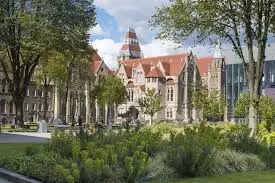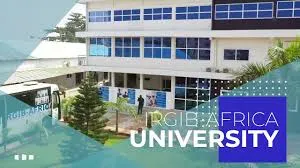- Introduction
- Why Study Internationally?
- Top International Universities for South Africans
- How to Apply to International Universities
- FAQs
- Conclusion

Top Best International Universities for South Africans
Introduction
Studying abroad is a transformative experience that offers South African students unparalleled academic and cultural opportunities. Whether you dream of pursuing engineering in Germany, business in the Netherlands, or medicine in Russia, international education provides a competitive edge in today’s globalized job market.
In this guide, we explore the top best international universities for South Africans and discuss how to apply successfully. With detailed insights into universities, costs, and application steps, you’ll find this the ultimate resource for achieving your educational dreams.
Why Study Internationally?

Studying internationally exposes South African students to:
- Diverse Cultures: Enhance your perspective by immersing yourself in different cultures.
- Quality Education: Many international universities rank among the world’s top institutions.
- Career Opportunities: Post-study work options and networking opportunities enhance career growth.
- Affordable Options: Contrary to popular belief, studying abroad can be affordable with scholarships and government-subsidized programs.
Top International Universities for South Africans

Let’s dive into some of the best international universities to apply for South African students across various countries.
Ireland
Ireland remains a favored destination for South Africans due to its English-speaking environment.
- Popular Universities: Trinity College Dublin, University College Dublin, and National University of Ireland Galway.
- Fields of Study: Computer science, engineering, medicine, and business.
- Costs: Tuition ranges from €12,000 to €30,000 annually, with living expenses between €1,240 and €2,303 per month.
- Work Opportunities: Students can work up to 20 hours/week during semesters and 40 hours/week during breaks.
- Stay-Back Options: The Third Level Graduate Scheme allows a two-year post-study work visa.
Netherlands
Known for its innovative education system, the Netherlands offers a wide range of English-taught programs.
- Popular Universities: University of Amsterdam, Delft University of Technology, and Utrecht University.
- Fields of Study: Engineering, environmental science, and business administration.
- Costs: Tuition fees range from €9,000 to €30,000 annually.
- Living Expenses: Average monthly costs are €800 to €1,200.
- Work Opportunities: Students can work up to 16 hours/week or full-time in summer.
- Stay-Back Options: The Orientation Year residence permit allows one year to find employment or start a business.
Germany
Germany offers free or low-cost education at public universities.
- Popular Universities: Heidelberg University, Technical University of Munich, and Humboldt University of Berlin.
- Fields of Study: Engineering, computer science, and health sciences.
- Costs: Most public universities charge only €200-€700 annual administrative fees.
- Living Expenses: Around €800 to €1,200 per month.
- Work Opportunities: Students can work up to 120 full days or 240 half days annually.
- Stay-Back Options: Graduates can stay for 18 months to find a job, with pathways to permanent residency.
Spain
Spain combines affordable tuition fees with vibrant culture.
- Popular Universities: University of Barcelona, Autonomous University of Madrid, and Pompeu Fabra University.
- Fields of Study: Arts, humanities, and business.
- Costs: Tuition fees range from €750 to €3,500 annually.
- Living Expenses: Between €700 and €1,300 per month.
- Work Opportunities: Up to 20 hours/week during semesters.
- Stay-Back Options: A one-year job search visa is available post-graduation.
France
France offers world-class education with affordable public university fees.
- Popular Universities: Sorbonne University, École Polytechnique, and University of Paris.
- Fields of Study: Sciences, arts, and business.
- Costs: Tuition starts at €2,850 for bachelor’s programs and €3,879 for master’s.
- Living Expenses: Ranges from €650 to €1,800 per month.
- Work Opportunities: Up to 964 hours/year during studies.
- Stay-Back Options: A Temporary Residence Permit allows 12 months to find work or start a business.
Hungary
Hungary’s affordability and medical programs attract many international students.
- Popular Universities: Semmelweis University and University of Szeged.
- Fields of Study: Medicine, dentistry, and engineering.
- Costs: Tuition ranges from €2,500 to €19,200 annually.
- Living Expenses: Around €500 to €700 monthly.
- Work Opportunities: Up to 24 hours/week during semesters.
- Stay-Back Options: A nine-month study-to-work permit is available.
Russia
Russia offers robust education in science and technology.
- Popular Universities: Moscow State University, Saint Petersburg State University, and Tomsk Polytechnic University.
- Fields of Study: Medicine, engineering, and IT.
- Costs: Tuition fees range from $2,000 to $8,000 per year.
- Living Expenses: $300 to $500 monthly for accommodation, food, and transport.
- Work Opportunities: Students can work part-time during their studies.
- Stay-Back Options: Graduates can apply for a work visa or explore the “Highly Skilled Specialist” program for long-term employment.
How to Apply to International Universities
Step-by-Step Guide
- Research: Identify universities and courses aligned with your career goals.
- Check Requirements: Review eligibility criteria, language proficiency tests (e.g., IELTS or TOEFL), and necessary documents.
- Prepare Documents: Compile transcripts, recommendation letters, and personal statements.
- Apply Online: Submit your application via university portals or centralized systems like UCAS for the UK.
- Secure Funding: Explore scholarships, grants, and student loans.
- Apply for Visas: Follow country-specific student visa requirements.
- Prepare for Departure: Arrange accommodation and plan your travel.
FAQs
Q: What are the most affordable international universities for South Africans? A: Germany’s public universities and Hungarian universities offer some of the most affordable tuition fees.
Q: Can South African students work while studying abroad? A: Yes, most countries allow part-time work during semesters and full-time during holidays.
Q: Are scholarships available for South African students? A: Many universities and governments offer scholarships specifically for international students, including South Africans.
Q: What language tests are required for international studies? A: Common tests include IELTS, TOEFL, or country-specific exams like TestDaF for Germany.
Conclusion
Embarking on an international education journey is a life-changing decision. With this comprehensive guide to the top best international universities for South Africans, you are well-equipped to make an informed choice. From the vibrant campuses of Ireland to the academic rigor of Russia, the opportunities are limitless.
Take the first step toward your dream today! Visit our website @ Campus Benin, or call us (+229 9471 1553), and also text us on Whatsapp [+229 5383 6082] for guidance and support in applying to the best international universities to apply for South African students. Your future starts here!
See More Related: https://campusbenin.org/russian-universities-scholarship-admission-for-international-students/


